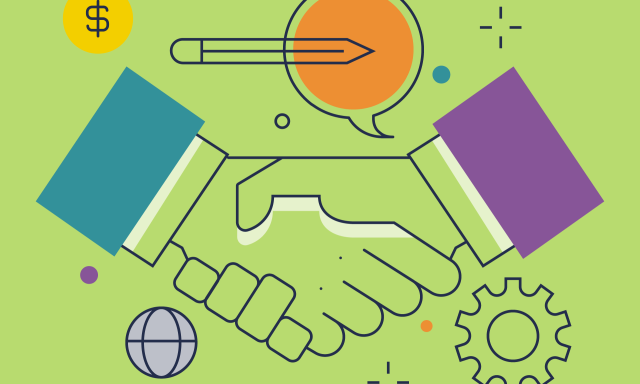

 Article
Article

 Too often, the world sees mega-threats: violent events that target marginalized identity groups and see with massive media coverage. These events arise from racism, bias and systemic oppression. How can one be a supportive ally if one is not part of the identity group that’s been attacked?
Too often, the world sees mega-threats: violent events that target marginalized identity groups and see with massive media coverage. These events arise from racism, bias and systemic oppression. How can one be a supportive ally if one is not part of the identity group that’s been attacked?

Insights from
Mega-threats — violent events that target marginalized identity groups and garner significant media coverage — occur too often. These events arise from racism, bias and systemic oppression. And although those origins are macro-level issues, their consequences are deeply experienced at the micro-level, especially by members of marginalized groups whose well-being, work engagement and interpersonal relationships may be negatively affected.
How can people who are not part of the targeted identity group be supportive allies? Particularly in a professional setting, a well-intentioned individual with a dominant identity (perhaps cisgender, white, etc.) may avoid trying to be an ally due to concerns about saying the wrong thing. Yet, ignoring an atrocity can communicate the notion that one doesn’t care.
Research has honed in on three key types of allyship — and specific behaviors underlying each type — that provide guidance for would-be allies.
Be proactive in your learning, rather than expecting that people of marginalized identities will take on the burden of educating dominant group members.
Unlike threats or disasters that are not targeted toward a specific group, a mega-threat does target a particular group of people, is physically and psychologically dangerous, and is likely to have widespread media coverage.
Before engaging with a colleague who belongs to a marginalized group, seek out and understand the opinions of other people in the relevant marginalized community. Doing so can help frame your own perspective and understanding.
News travels fast. A violent event may not literally be in your city, but its effects can feel immediate to those who identify with victims of the event.
If you do not share the minority identity of your colleague: Even the best allies can’t fully understand what their minority colleagues are going through, and that’s okay. You don’t need to fully understand the experience to be a supportive ally. Keep learning and be willing to acknowledge when you misunderstand or fall short.
Mega-threats dehumanize. There is great value in empathically communicating to those who may feel that way that their group identity is an important part of society, and their whole self is valued and belongs in your organization and work group.
On top of the physical threat someone may feel, a sense of self-worth may feel attacked or diminished. Acknowledging how they add value to the team may be encouraging.
Some people may want to talk about how they’re affected; some may not. Take note that these feelings may change day-to-day or moment-to-moment.
Knowing that feelings will fluctuate, ask someone how they’re doing that day or tell them that your thoughts are with them. This specific ask may be more a more effective form of support than a generic, “You OK?”
Provide your colleague with genuine solutions to workplace problems. A distressing event can lead to both psychological and physical effects, and taking on even a small responsibility may make a huge difference to their daily life.
Speak up regularly, not just in the organization and not just after a mega-threat. But do take the opportunity to discuss the ongoing need for change.
Whether you help organize them or encourage attendance, events that educate and provide actionable steps will help others be proactive ambassadors of fighting discrimination.
Some months are already dedicated opportunities to celebrate heritage. These can be gateways to conversations about how to support marginalized groups.
Effecting change can take some time. If you commit to a group that welcomes allies as members, you’ll develop relationships, which will boost both your understanding and your opportunities for support.
A massive amount of emotional work can follow a mega-threat. Help your organization understand the need for mental-wellness days and virtual participation.
Read more in Darden Professor Melanie Prengler’s article “How to Be an Ally to Colleagues After Violence Against Their Community” on HBR.org, co-authored with Kristie Rogers of Marquette University, Nitya Chawla of Texas A&M University and Angelica Leigh of Duke University.
Prengler’s research focuses on employees at the leading edge of two trends in organizations. First, she studies how employees in remote work arrangements create a sense of workplace out of nonwork space. Second, she studies how employees can reduce systemic discrimination in their organizations via allyship and anti-racism. In particular, she has examined the strategies used by Black law enforcement officers to reduce discrimination in police organizations and encourage diversity, equity and inclusion in both organizations and society. She has also investigated how employees can be allies to postpartum women returning to work, as well as how allies can maintain resilience through allyship shortcomings.
Prengler’s research has received numerous awards, including the 2021 AOM MOC Division's Best Student-Led Paper award, a 2021 SIOP Anti-Racism grant, a Mays Innovation Research Center grant, and her dissertation was recognized as a finalist in the 2021 INFORMS Dissertation Proposal Competition.
B.A., Texas A&M University; M.A., Sam Houston State University; Ph.D., Texas A&M University Mays School of Business
A Quick Guide for Allies After a Mega-Threat
Share